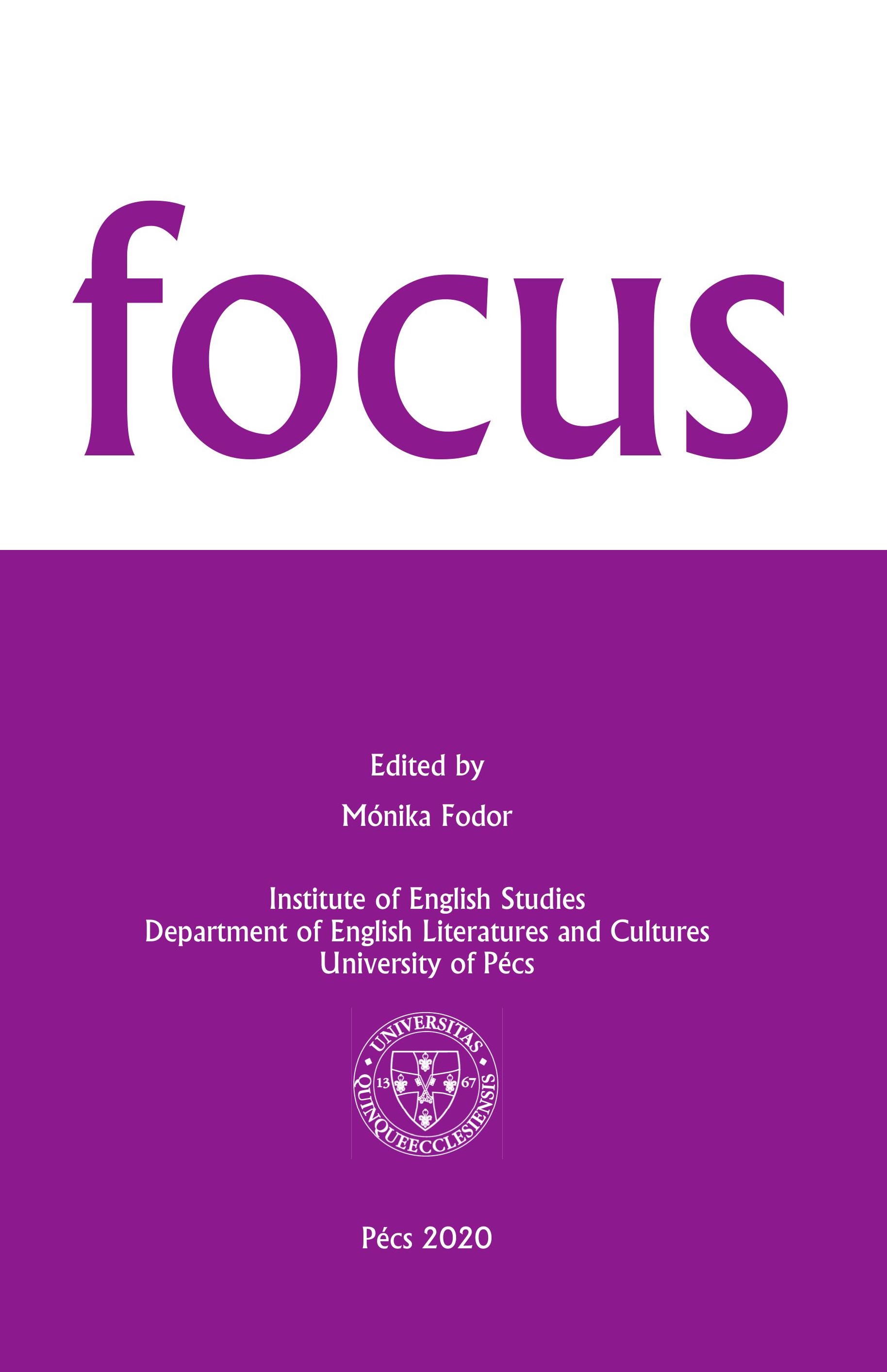"There's no cure for the Internet" - Surveillance, Spectatorship, and Sanctuary in Black Mirror
DOI:
https://doi.org/10.15170/Focus/12.2020.8.115-131Abstract
The British-American anthology series Black Mirror (2011-2019) constructs delicately balanced worlds that are “just realistic enough to get under the viewer’s skin, yet just extreme enough to grab attention and not let go until [the] bleak resolution” (33). The episodes that I will examine here may be read as examples of surveillance capitalism’s modus operandi. “Hated in the Nation” and “Fifteen Million Merits” present over-technologized societies characterized by a complete lack of privacy, eliminating both sanctuary and exit—which, as Zuboff also contends, is closely correlated with the individual’s lack of agency in- or outside the (social) hive (444). Although the selected episodes are characterized by substantial differences in tone, setting, plot, and aesthetic and psychological strategies, surveillance and spectatorship— complicating boundaries between externality and internality—have central functions in both. Concerned both with the characters’ experience and with the audience’s position(ality) and identification processes in the act of viewing, this essay analyses the mechanics of the filmic text in the episodes, looking at how it problematizes the central issues of spectatorship, surveillance, and (the lack of) sanctuary.
Downloads
Published
How to Cite
Issue
Section
License
Copyright (c) 2022 FOCUS: Papers in English Literary and Cultural Studies

This work is licensed under a Creative Commons Attribution-NonCommercial-NoDerivatives 4.0 International License.
FOCUS: Papers in English Literary and Cultural Studies follows the principles laid down by Creative Commons, which provides guarantees for the Author’s copyright while also ensuring that intellectual properties are made available for the wider public in a digital form. All papers submitted to the journal apply the following licence conditions (indicated on the journal’s website as well as in individual publications):
“© This work is licensed under a Creative Commons Attribution-NonCommercial-NoDerivatives 4.0 International License.”
You are free to:
- Share, copy and redistribute the material included in the journal in any medium or format under the following terms:
- Attribution — You must give appropriate credit to the Author, and indicate the original place of publication [FOCUS: Papers in English Literary and Cultural Studies, Issue nr., page numbers.].
- NonCommercial — You may not use the material for commercial purposes.
- NoDerivatives — You are not allowed to remix, transform, or build upon the material.
- The above conditions must always be indicated if the journal material is distributed in any form.
- The above conditions must always be met, unless a written permission signed by the Author and the Editor-in-Chief states otherwise.

